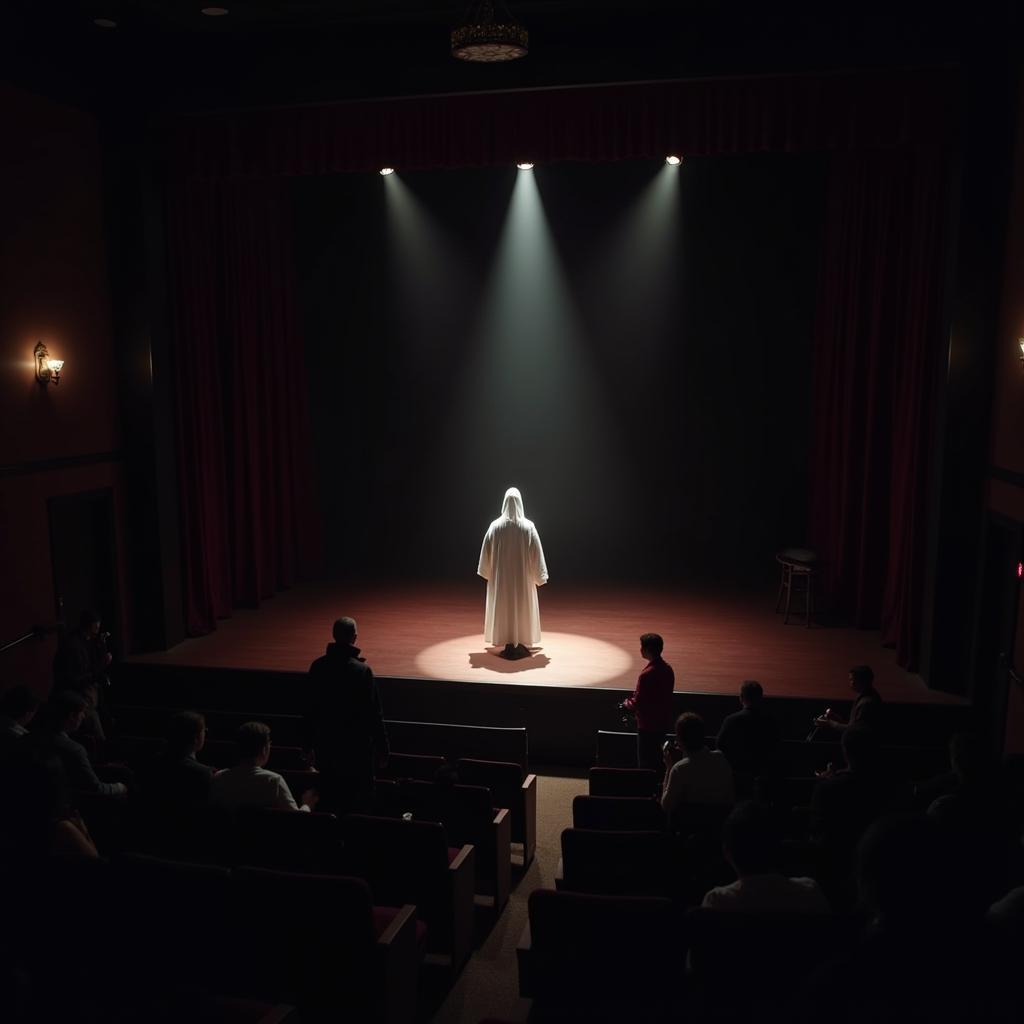Rbc Research is a term that often sparks intrigue and curiosity within the realm of paranormal investigation. While often shrouded in mystery and speculation, it represents a unique approach to understanding and interacting with unseen forces. This exploration delves into the fascinating world of RBC research, examining its principles, methodologies, and potential applications in unraveling the mysteries of the paranormal.
What is RBC Research?
RBC research, or Randomized Blind Challenge, is a scientific methodology borrowed from other fields and adapted for paranormal investigations. It aims to introduce objectivity and eliminate bias, common challenges faced when studying subjective experiences and elusive phenomena.
In essence, RBC research involves a structured experiment where:
- Randomization: Targets for investigation, like haunted locations or individuals with claimed abilities, are chosen randomly from a pool of possibilities. This prevents researchers from consciously or unconsciously favoring sites or subjects believed to yield positive results.
- Blinding: The individuals collecting and analyzing data remain unaware of which targets are designated as the “real” ones. This blinding process helps prevent confirmation bias, ensuring analysts don’t interpret ambiguous data as supporting pre-existing beliefs.
How is RBC Research Applied in Paranormal Investigations?
The beauty of RBC research lies in its adaptability to various paranormal investigations. Let’s consider a few examples:
1. Investigating Haunted Locations:
Imagine a team researching claims of a haunted theater. Using RBC principles, they might randomly select this theater and several others with similar architectural styles but no reported paranormal activity.
 RBC Experiment in a Haunted Theater
RBC Experiment in a Haunted Theater
Blind to which theater is the alleged haunted one, investigators would collect data like EMF readings, EVP recordings, and temperature fluctuations. This data would then be analyzed to determine if any statistically significant differences exist between the locations.
2. Testing Psychic Abilities:
RBC research can also be employed to test claims of psychic abilities. For example, individuals claiming clairvoyance might be presented with a series of randomly chosen images, some emotionally charged and others neutral.
Blinded to the content of these images, the individuals would then attempt to describe or “sense” their content. If their responses consistently align with the emotionally charged images at a rate significantly higher than chance, it could suggest evidence of their claimed abilities.
Benefits and Limitations of RBC Research:
Benefits:
- Objectivity: By incorporating randomization and blinding, RBC research minimizes researcher bias, lending credibility to the findings.
- Statistical Analysis: The structured design allows for statistical analysis, providing a more objective measure of whether the observed results are likely due to chance or a genuine paranormal phenomenon.
- Replicability: Clearly defined protocols make RBC research replicable, allowing other investigators to repeat experiments and potentially strengthen the validity of the findings.
Limitations:
- Complexity of Paranormal Phenomena: Paranormal activity is often unpredictable and influenced by numerous factors. RBC research, while controlled, may not always capture the nuances of these phenomena.
- Ethical Considerations: When dealing with sensitive subjects like hauntings or psychic abilities, ethical considerations must be addressed to avoid causing distress or exploiting individuals.
Conclusion:
RBC research offers a valuable framework for exploring the world of the paranormal with a greater degree of scientific rigor. While it may not provide definitive answers to every mystery, it represents a crucial step toward understanding the unknown. By embracing objectivity and employing rigorous methodologies, we can continue to unravel the enigma of the paranormal, separating genuine phenomena from misinterpretations and paving the way for a deeper understanding of the universe and our place within it.
FAQs about RBC Research:
1. Is RBC research widely accepted in the paranormal community?
While gaining traction, RBC research is relatively new in the paranormal field. Some traditional investigators remain skeptical, while others embrace its potential for more objective investigations.
2. Can RBC research prove or disprove the existence of ghosts?
RBC research, like any scientific methodology, cannot definitively prove or disprove the existence of ghosts. However, it can provide compelling evidence that either supports or challenges existing theories.
3. Are there any online resources for learning more about RBC research?
Yes, several organizations dedicated to scientific paranormal research, such as the Society for Psychical Research and the Rhine Research Center, offer resources and information on RBC methodologies.
4. Can I conduct RBC research on my own?
While possible to conduct smaller-scale investigations, consulting with experienced researchers and adhering to ethical guidelines is crucial for ensuring proper methodology and data analysis.
Need Assistance With Your Paranormal Investigation?
Our team at Paranormal Research is here to assist. Contact us at:
Phone: 0904826292
Email: research@gmail.com
Address: No. 31, Alley 142/7, P. Phú Viên, Bồ Đề, Long Biên, Hà Nội, Việt Nam
We offer 24/7 support and a wealth of resources to help you explore the unknown.